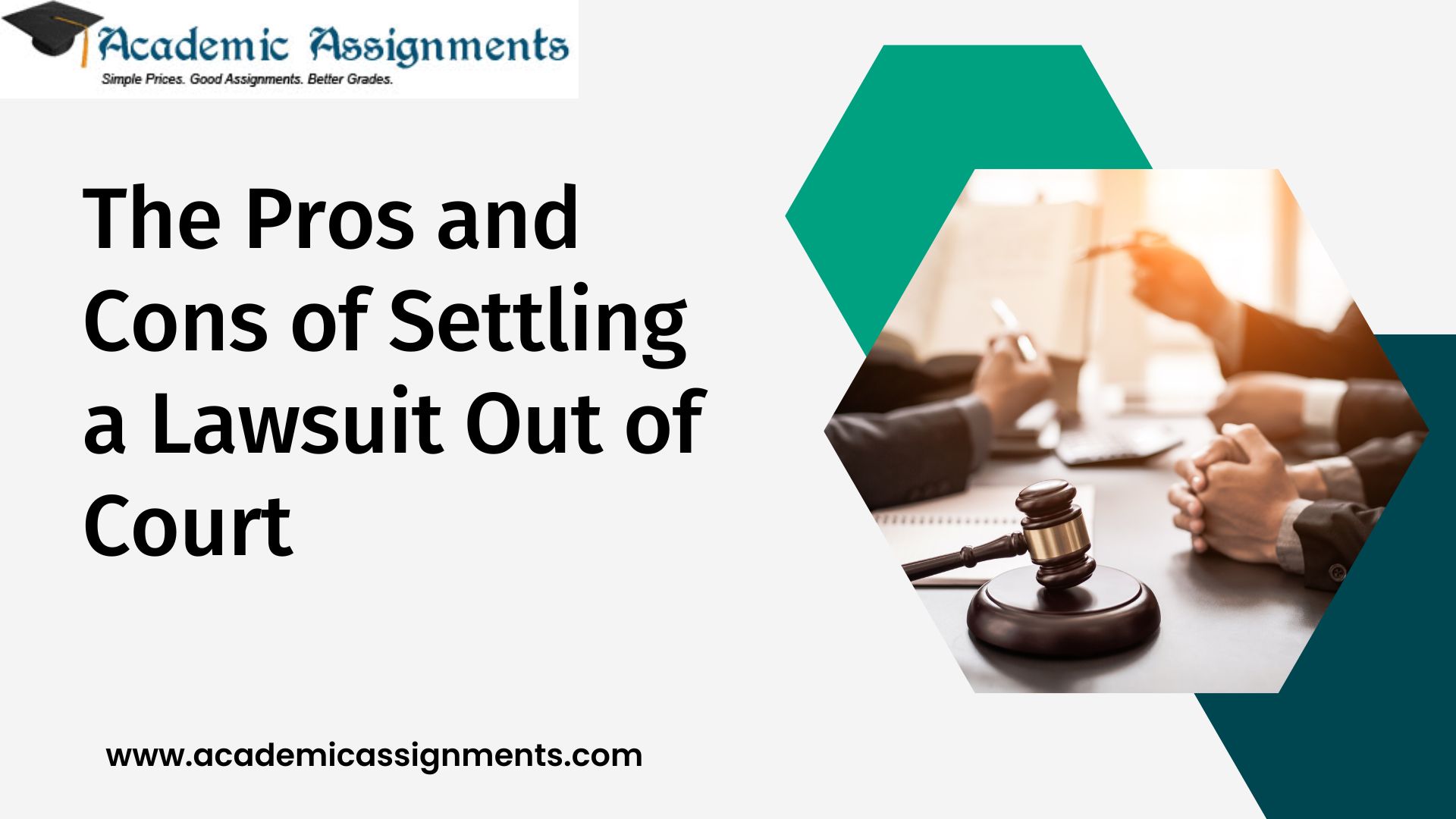The Pros and Cons of Settling a Lawsuit Out of Court
Personal injury cases are varied and can lead to compensation for a range of damages, including physical or emotional harm, lost income, and missed work due to an accident. Such cases usually arise when one party’s negligence causes harm to another person, resulting in significant injuries and substantial medical expenses.
Going to court is not always necessary for resolving personal injury cases, and if you have suffered a serious injury, it may be helpful to seek the assistance of a licensed personal injury lawyer who can negotiate a settlement on your behalf. This process can be faster than going to court and is typically more successful when conducted by an experienced lawyer with expertise in negotiating fair settlements.
What to Consider
Before agreeing to a settlement offer from the opposing party in a personal injury case, it’s important to take into account various factors. Your personal injury lawyer will need to examine critical information to determine the strength of your case and the probability of winning at trial. Additionally, they must assess the possible amount of compensation that could be received from a trial versus the proposed settlement amount.
To decide whether accepting a personal injury settlement is in your best interest, it’s essential to weigh the following pros and cons:
Pros:
- Settling your personal injury case guarantees a predetermined amount of compensation without going to trial.
- If you go to trial, settlement offers are usually off the table, and you could end up losing the original settlement amount and possibly owe additional costs if the defendant wins.
- Settling your case can save you significant time and stress by avoiding court appearances and ongoing lawsuits.
- With a settlement, you can receive compensation immediately and cover any medical or out-of-pocket expenses without delay.
- Settling out of court can also protect your privacy by avoiding public exposure that may be required during a trial and having personal information scrutinized.
Cons:
- If you accept a settlement offer from an insurance company, you may receive less compensation than what you could potentially receive by going to trial.
- Seeking advice from a knowledgeable personal injury lawyer is crucial to determine the value of your claim and the best strategy to maximize your compensation.
- In certain cases, plaintiffs may receive punitive damages if the defendant is found guilty of bad faith or gross negligence, but these damages are often not included in out-of-court settlements.
- A personal injury lawyer can assess the strength of your case and advise if pursuing a trial would lead to a better outcome than accepting a settlement offer.
- Settling out of court usually involves a clause that the defendant is not admitting liability for the incident, which some victims may find unsatisfactory.
- Some plaintiffs may prefer to go to court to receive an apology from the defendant or to have a written Judgment stating that the defendant was at fault, which is not possible with an out-of-court settlement.
Author Bio:
Mark Edmonds is an experienced writer at Academic Assignments, a leading provider of high-quality assignment writing services. He specializes in providing top-notch law assignment help to students and professionals alike. With his in-depth knowledge and expertise in the field of law, Mark delivers insightful and well-researched content that helps readers make informed decisions.

 Blogs
Blogs +44 207 5588165
+44 207 5588165

